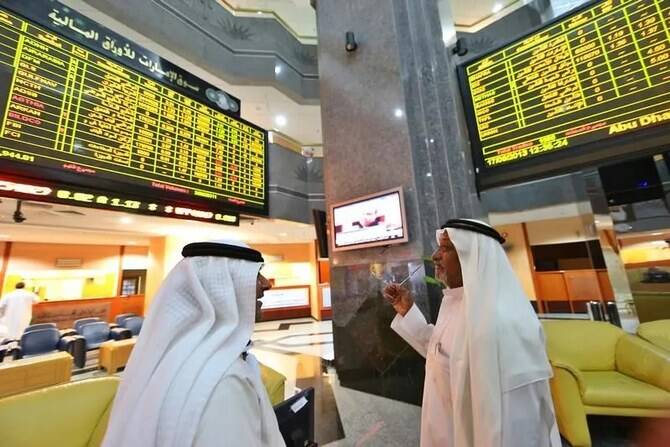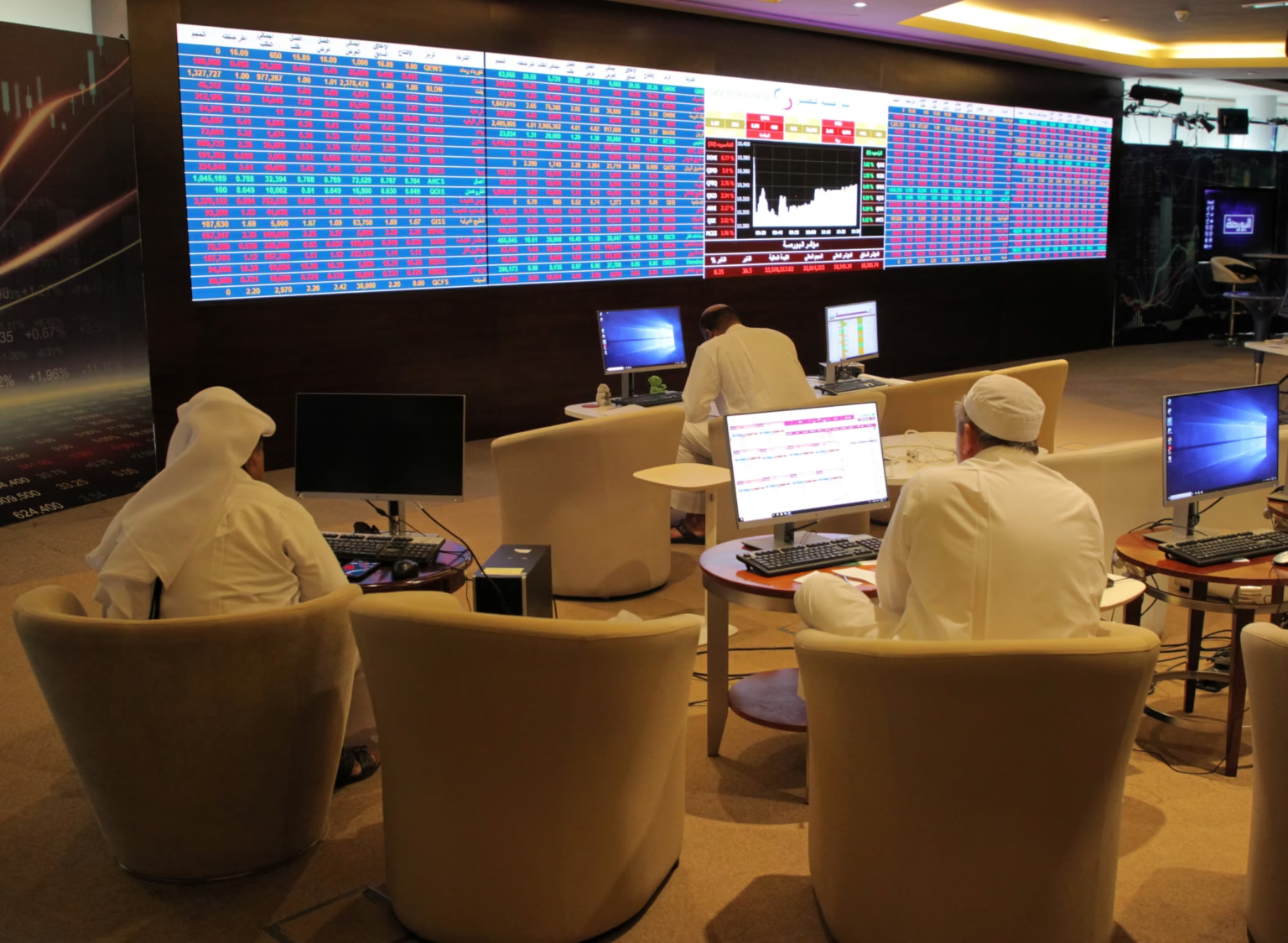Markets worldwide tumble as tensions rise, but TASI continues upward climb
Saudi Arabia’s stock market delivered a strong performance on Tuesday, with the benchmark Tadawul All Share Index (TASI) gaining 2% despite mounting concerns about a looming global trade war. This jump in the Kingdom’s stock market stands in sharp contrast to the declines seen across major financial markets in Asia, Europe, and the United States.
The recent rise in the TASI has caught the attention of investors and market watchers around the world, especially as other markets struggle under the weight of uncertainty and escalating geopolitical tensions. With headlines dominated by fresh threats of tariffs, strained diplomatic relations, and predictions of economic slowdowns, Saudi Arabia’s surprising stock performance is seen as a rare bright spot in a gloomy global picture.
TASI Continues to Climb While Others Fall
The TASI closed Tuesday’s trading session with a 2% gain, building on the 1.05% increase from the day before. This puts the Saudi market on track for one of its strongest weeks in recent months. The positive momentum appears driven by a mix of investor confidence in the Kingdom’s domestic economic policies, stability in oil markets, and a perception that Saudi Arabia may be less exposed to the direct impact of global trade disputes.

As other global indices retreated sharply due to growing trade tensions between the world’s largest economies, investors in Saudi Arabia focused more on local fundamentals, upcoming earnings announcements, and optimism surrounding long-term economic reform programs.
Global Trade War Buzz Shakes Markets Worldwide
The markets in much of the world are under pressure due to rising trade tensions, primarily between the United States and China. Over the past week, the U.S. administration has escalated its rhetoric and announced plans for new tariffs on hundreds of billions of dollars’ worth of Chinese imports. In response, China has warned of strong countermeasures and is preparing retaliatory tariffs of its own.
This exchange of threats has raised fears among global investors of a prolonged trade war that could slow down economic growth, hurt manufacturing and technology sectors, and disrupt global supply chains. As a result, markets in Europe, Asia, and North America have experienced increased volatility.
Major indexes such as the FTSE 100, Germany’s DAX, Japan’s Nikkei 225, and the S&P 500 in the U.S. have all seen losses in recent sessions, driven by investor anxiety over the potential consequences of a breakdown in global trade relations.
Despite the risk sentiment dominating headlines, the Saudi stock market appears to be moving in a different direction.
Why is Saudi Arabia’s Market Performing Well?
The positive performance of the TASI may be explained by a combination of several domestic and international factors:
1. Oil Prices Providing Support
Saudi Arabia remains one of the world’s largest oil exporters, and oil prices have held relatively steady despite global market uncertainty. Rising or stable oil prices tend to boost investor sentiment in the Kingdom, given how closely its economy is tied to energy exports. Additionally, any perceived geopolitical instability often contributes to stronger oil prices, which indirectly benefits Saudi Arabia.
2. Diversification and Vision 2030
The Saudi government has been steadily implementing its Vision 2030 reform plan, which aims to reduce the Kingdom’s dependence on oil by developing sectors such as tourism, finance, technology, and infrastructure. These efforts have drawn international investment interest and created new opportunities in the local market.
Investors see promise in sectors like banking, construction, and healthcare, all of which are key areas targeted under the government’s diversification goals. As these reforms progress, confidence in the long-term outlook of the Saudi economy continues to grow.
3. Local Investor Confidence
Local investors, who make up a significant share of trading activity on the TASI, appear unfazed by international developments. Some analysts suggest that domestic investors believe the Saudi market is more insulated from the effects of U.S.-China trade disputes, and they are more focused on company earnings, dividend announcements, and regional economic trends.
4. Attractive Valuations and Earnings
Many listed companies in the Saudi market are showing strong earnings results, and valuations remain attractive relative to some international peers. Sectors like banking, petrochemicals, and utilities have posted solid numbers, which have encouraged more buying activity.
Market Analyst Perspectives
Financial experts view Saudi Arabia’s positive momentum as both encouraging and reflective of a broader shift in investor behavior in emerging markets. While global funds continue to closely monitor risk in advanced economies, there is an increasing appetite for markets that offer relative stability and growth potential.
Analysts point out that Saudi Arabia, with its robust foreign reserves, ongoing reforms, and strong leadership direction, offers an appealing story at a time when uncertainty clouds the outlook for many other countries.
Still, most agree that investors should remain cautious. If trade tensions between the U.S. and China escalate further, or if there are unexpected moves in oil markets, the Saudi exchange could feel the ripple effects.
Outlook for Global Markets
Looking beyond Saudi Arabia, the mood across global markets remains tense. Economists are warning that if the trade conflict expands, it could reduce global GDP growth in 2025 and beyond. Manufacturing, especially in Asia and Europe, could be hit hard. Tech companies in the U.S. and China may also face serious supply chain disruptions.
Central banks in key economies are also under pressure to respond. While some may consider interest rate cuts to support growth, others remain focused on fighting inflation. This mixed environment makes global investing more complex and unpredictable.
What Investors Should Watch Next
For investors eyeing the Saudi market, there are several key things to watch over the coming weeks:
- Corporate Earnings Releases: The next round of quarterly earnings will provide insight into how companies are performing and whether recent gains are sustainable.
- Oil Price Fluctuations: As always, oil remains a major driver. Any big moves in global crude oil prices will directly influence market behavior.
- Geopolitical Developments: Continued news from the U.S.-China trade front, as well as developments in the Middle East region, will be important in shaping sentiment.
- Monetary Policy: Actions from global central banks — particularly in the U.S. and Europe — may impact emerging markets through capital flows and currency movements.
Conclusion
In a world rattled by uncertainty, Saudi Arabia’s stock market has emerged as a surprising leader this week. While global indices falter under the strain of escalating trade conflicts, the Kingdom’s TASI has not only held steady but pushed higher. The 2% gain on Tuesday sends a strong signal that confidence in the domestic economy remains intact.
Whether this momentum can be sustained will depend on a mix of domestic performance, global events, and investor sentiment. But for now, Saudi Arabia stands out as one of the few markets beating the odds.
First Migrant Worker Dies at Saudi World Cup Stadium Construction Site



